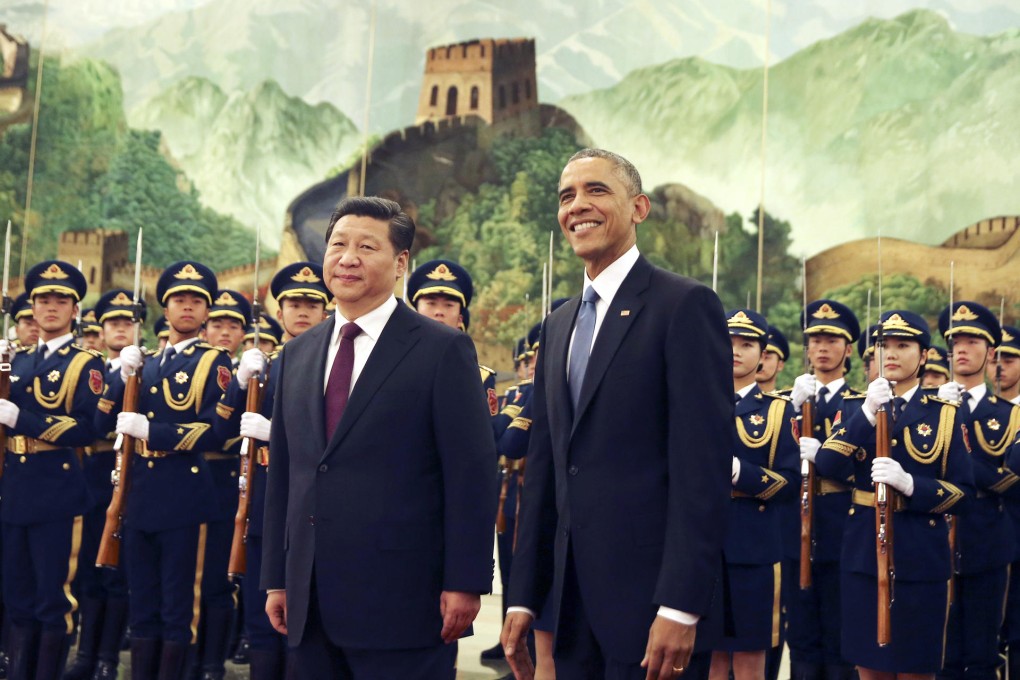Xi Jinping and Barack Obama agree on raft of measures to boost relations
President Xi Jinping and his US counterpart Barack Obama reached consensus on a wide range of issues that the two leaders hope will contribute to a reshaping of bilateral relations. Here are the major points they announced:

President Xi Jinping and his US counterpart Barack Obama reached consensus on a wide range of issues that the two leaders hope will contribute to a reshaping of bilateral relations. Here are the major points they announced:
China's CO {-2} emissions will peak around 2030 and it will increase the non-fossil fuel share of energy generation to 20 per cent about the same time. China will actively expand the nuclear, wind, solar and other renewable energy sectors.
The United States will reduce net greenhouse gas emissions to 26 to 28 per cent below 2005 levels by 2025. This means doubling the pace of carbon pollution reduction from 1.2 per cent a year between 2005 and 2020 to 2.3 to 2.8 per cent between 2020 and 2025.
The two countries agreed to expand joint clean energy research and development through the US-China Clean Energy Research Centre (CERC). They will provide new funding for developing clean vehicles, advanced carbon capture and storage techniques, renewable energy technology and promoting trade in green goods. Cities in both countries will share good practice and experiences through a Climate-Smart/Low-Carbon Cities summit.